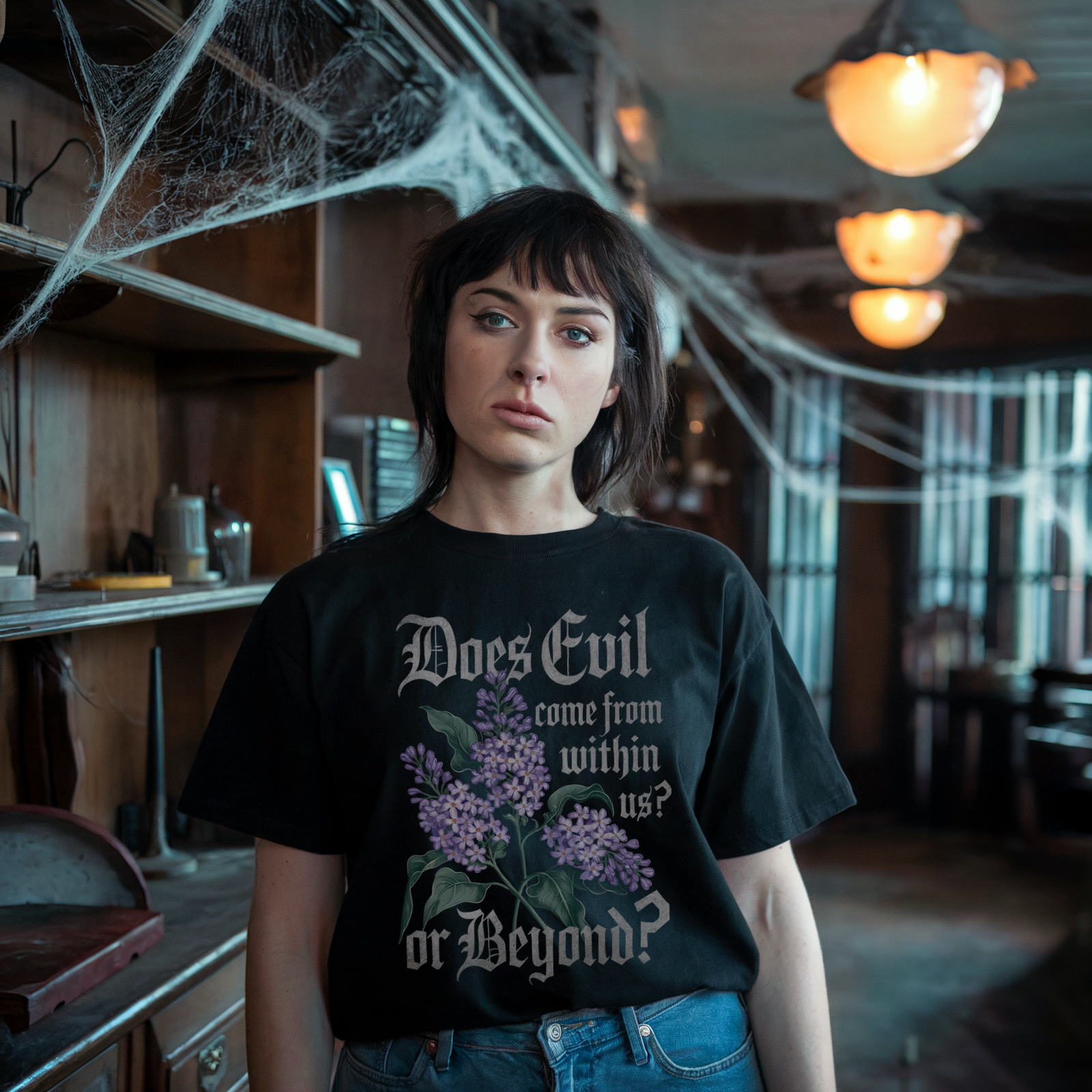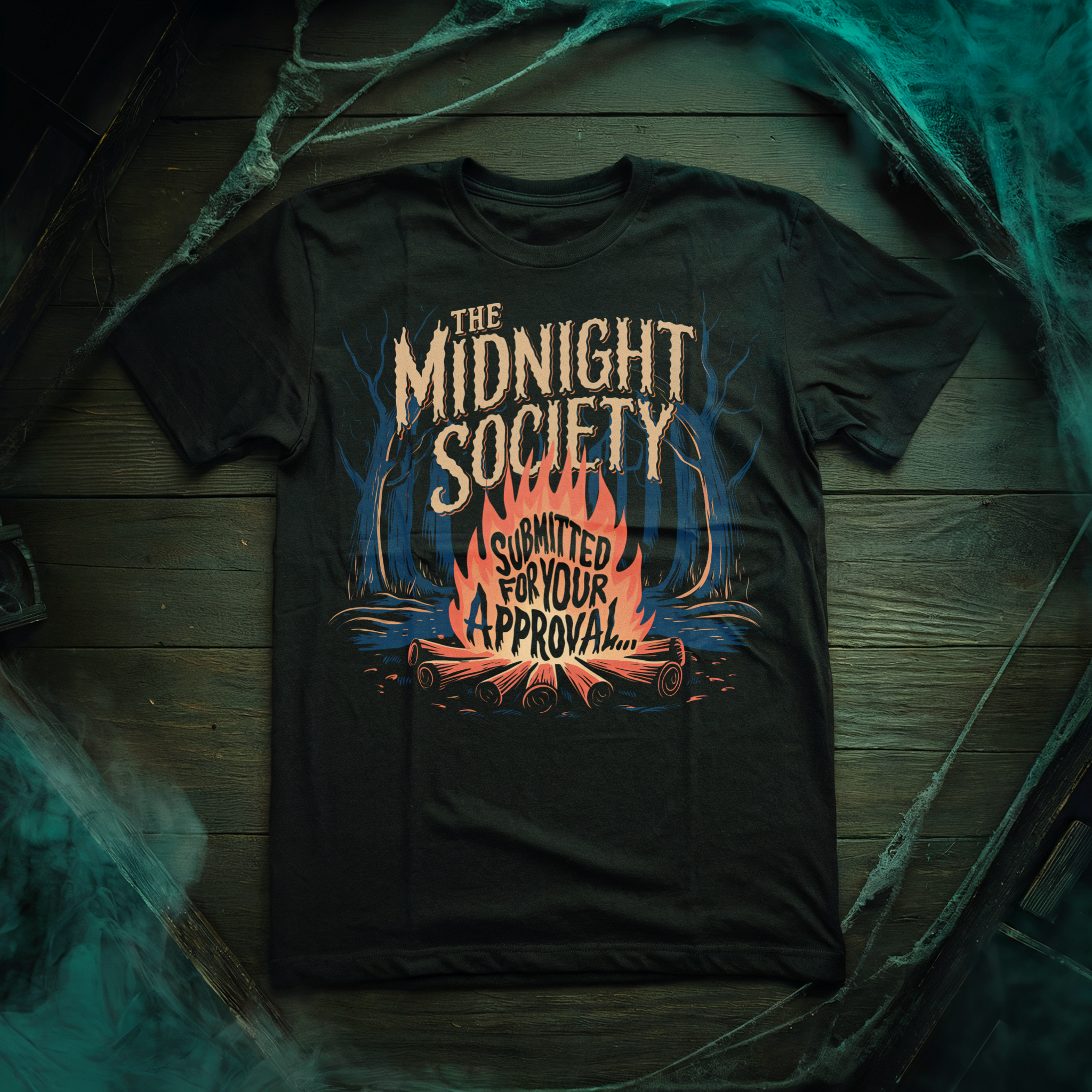Even in death, there is no peace for the weary or the ones they leave behind. Someone like Jocelin Donahue’s character in Offseason understands this sentiment. Mickey Keating’s new movie follows a lost woman caught in an uncanny situation after rushing off to her late mother’s birthplace. In time, though, the daughter gradually realizes why her mother was so insistent on never returning there — dead or alive.
A brief, nostalgic opening sequence set to Camille Saint-Saëns’ movement “Aquarium” shows just how idyllic the island village Lone Palm used to be. The near-present day then comes into stark view as ailing actor Ava Aldrich (Melora Walters) tells her only child how she narrowly escaped Lone Palm and how nightmares always stay “a part of you.” Now, after having received an urgent letter from the caretaker of her mother’s grave, Marie (Jocelin Donahue) travels to the aforesaid town’s cemetery along with her friend George (Joe Swanberg).
“[…] in the style of horror staples like The Fog“
Right off, Offseason has the familiar trappings of other homecoming horror stories somehow instigated by a parent’s death; this feels all too appropriate given the themes within. Marie goes to Lone Palm to not only examine the damage to her mother’s burial site, but to also ebb her own guilt over how she couldn’t carry out her mother’s final wishes. The town is about to enter its off-season when Marie and George arrive; the caretaker’s letter was received only the day before. The drawbridge connecting the mainland and island is set to go up soon and leave any visitors stranded, but Marie isn’t thinking about that right then and there.
With tourism over until spring, the film’s destination is widely different now — ghostlike, drab, and uninviting. The remaining residents are colorless and chilly much like this new and sudden weather; they provide no help when tracking down the missing caretaker. In light of the townsfolks’ aloof behavior, in combination with a bitter, listless environment shrouded in a traveling mist, it’s easy to mistake Lone Palm’s faded splendor as an everyday occurrence. Nothing could be further from the truth. The duality of this place’s appearance and behavior has much to do with its troublesome history. As Marie‘s visit becomes an inevitable nightmare, her mother’s disturbing fable about Lone Palm’s origins rattles in the back of her head. She doesn’t consider the story anything more than the ramblings of an unwell woman, but seeing is believing once the movie’s more terrifying elements are established.
“[…] a potent brew of grief horror, cosmic dread, and fatalism.”
The movie’s evil-boding ambiance and muted palette are in the style of horror staples like The Fog. Appliances and fashion are plucked from different vintages, but overall, Keating’s low-tech, neutral milieu emphasizes the stagnancy of everything. From a woman invariably weighed down by family problems, to a town shackled to its macabre traditions, the film shows the harm our pasts can do. Further on, the script confirms savvy suspicions about the maritime menace who “saved” Lone Palm and doomed future generations. That revelation is pulled off with more subtly than someone might expect — or want — when comparing this with other movies boasting similar threats.
Marie‘s journey through Lone Palm is interposed with upsetting flashbacks of her last conversations with her mother and the legal battles that followed her death. The daughter inherits her mother’s burdens in more ways than one, and for that, she pays an unfair price. Add in the incomprehensible evil possessing a whole town and you have here a broad study of undue dread. We witness the personal horrors that naturally come with losing a loved one, and on top of that, there is an omniscient terror that defies explanation. Keating mixes those two channels of fear with know-how and enthusiasm.
Offseason is ultimately more about mood than action. Viewers will no doubt feel the strain of Keating’s deliberate pacing and the frustration of his answering questions with even more questions. However, that total uncertainty is an asset in the grand scheme of things. This capable picture is a potent brew of grief horror, cosmic dread, and fatalism. It’s hard to say if everything in this love letter to Gothic fiction will appeal to all, but the delivery system is undeniably impressive.
“Viewers will no doubt feel the strain of Keating’s deliberate pacing […] However, that total uncertainty is an asset in the grand scheme of things.”
Mickey Keating’s Offseason celebrated its World Premiere at the 2021 SXSW Film Festival. Click HERE to follow our full coverage of the festival and be sure to let us know if you’re excited to check out this descent into cosmic madness over on Twitter, Reddit, Facebook, and in the official Nightmare on Film Street Discord. Not a social media fan? Get more horror delivered straight to your inbox by joining the Neighbourhood Watch Newsletter.





![Offseason Featured Image [#SXSW 2021 Review] Mickey Keating's OFFSEASON is a Storm of Grief Horror and Cosmic Dread 10 Offseason Still featuring Jocelin Donahue](https://nofspodcast.com/wp-content/uploads/2021/03/Offseason-Featured-Image.jpg)



